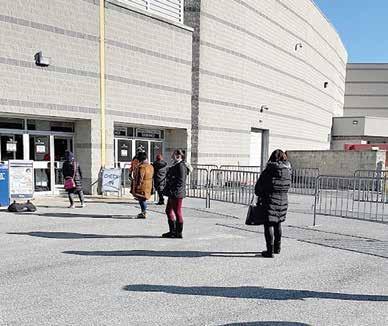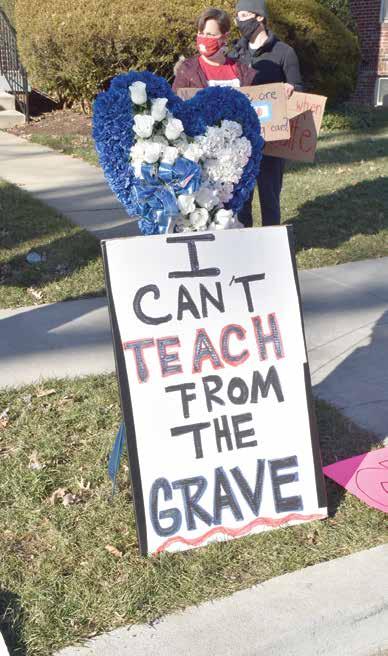OPINIONS/EDITORIALS
EDITORIAL
Hidden Figures in Plain Sight
It’s February - Black History Month – the month of the year when this nation pauses to take note of the past achievements and contributions to society made by African Americans. It took the vision and tenacity of Dr. Carter G. Woodson, a Black man, born the son of former slaves in 1875, and who later became a Harvard University scholar, to establish a Black History Week. He observed that African Americans’ contributions “were overlooked, ignored, and even suppressed by the writers of history textbooks and the teachers who use them, to the effect that the Negro has never contributed anything to the progress of mankind.” Woodson denounced this historical flaw and gave birth to an occasion to set the record books straight about African American achievements past and present. But the dilemma still exists. Ignorance and lack of interest in Black people and the value they give to our society are pervasive. Black history is still absent from school curriculums. Very few teachers can teach Black children – or any children – Black history or the contributions of Black people. It took a Hollywood producer filmmaker to unveil the story of a team of Black women who worked at NASA and the critical contributions they made to the NASA’s Manned Space Program. And, these women were still present among us, living history but hidden in plain view. The contribution of a Black woman, Dr. Kizzmekia Corbett, a leading scientist involved in developing the COVID-19 vaccine that may contribute to the end of a world pandemic, remains a little-known Black History fact. And, retired Gen. Lloyd J. Austin, III, the first Black vice chief of staff of the U.S. Army and the first Black commander of U.S. Central Command, who was recently confirmed as the first Black U.S. Secretary of the Department of Defense, is not considered worthy deserving of recognition by some Black Americans. They ask, “What has he achieved worth recognizing?” We need Black History Month, and the nation owes Dr. Woodson an expression of gratitude for making sure the contributions of Black people are not ignored or forgotten. But the work of remembering belongs to those among us who should not take these contributions for granted. There are heroes and sheroes among us, living in our home or our next-door neighbor. They are hidden figures in plain view, whose contributions are worth celebrating while still with us, in February and all year long. WI
It took the vision and tenacity of Dr. Carter G. Woodson, a Black man, born the son of former slaves in 1875, and who later became a Harvard University scholar, to establish a Black History Week.
TO THE EDITOR The Natural State of Things
Both Sides of the Aisle
I loved the story "Equestrian Program Helps Young People Battle Depression During Pandemic" by Sam P.K. Collins. I've always been an advocate of the healing powers of the outdoors from yoga, hiking, swimming, bike riding and everything else in between. I'm glad that children are able to get out and be in nature to get through this trying time.
The Black Republicans story really opened my eyes to a lot of things involving identity politics. I think that Black people should be Republicans if they so choose. I don’t understand why they get so much flack when both parties are questionable if you ask me. Maybe if there are more Black Republicans, Black people could really gain some political leverage. Just a thought.
Marlana Lamberg Washington, D.C.
Stephen Kirkland Hyattsville, Md.
Readers' Mailbox
WWW.WASHINGTONINFORMER.COM / THE WASHINGTON INFORMER
The Washington Informer welcomes letters to the editor about articles we publish or issues affecting the community. Write to: lsaxton@washingtoninformer. com or send to: 3117 Martin Luther King Jr Ave., SE, Washington, D.C. 20032. Please note that we are unable to publish letters that do not include a full name, address and phone number. We look forward to hearing from you. FEBRUARY 4 - 10, 2021 29





